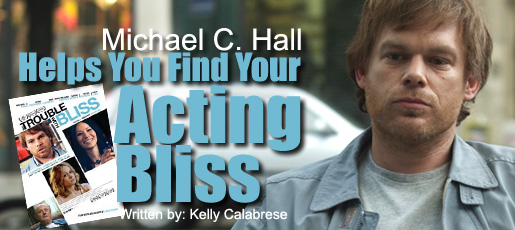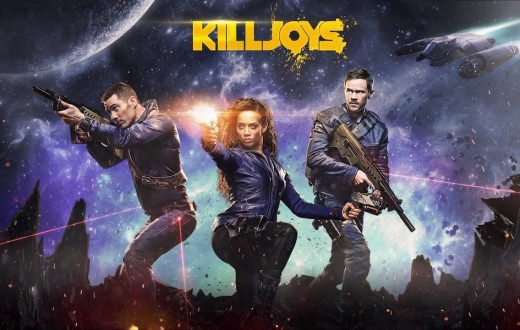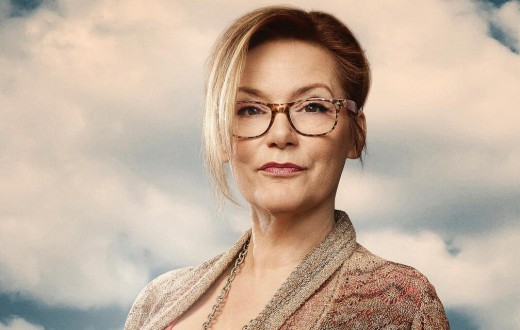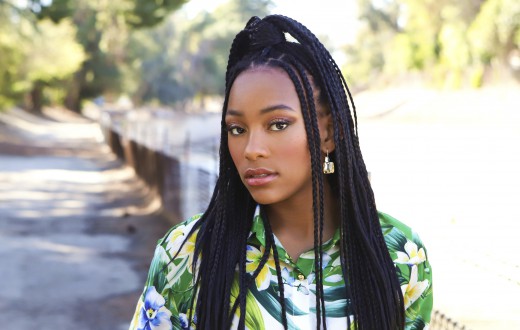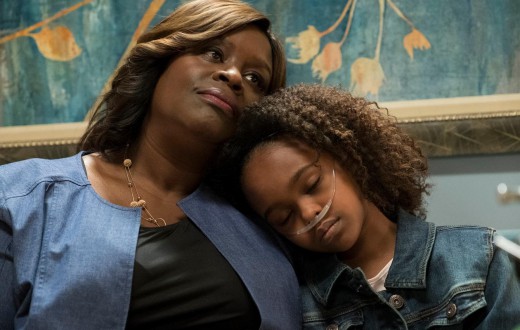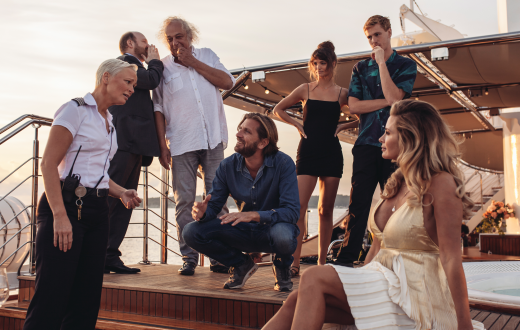My definition of bliss? Watching Michael C. Hall perform in, well… anything! As an actor, he has a way of conveying many layers with a subtle yet dynamic energy. And in his latest film, The Trouble with Bliss, Michael once again delivers acting perfection.
The Trouble with Bliss, Written and Directed by Michael Knowles, tells the story of a guy in his mid-thirties, Morris Bliss (Michael C. Hall), who watches as his life comically unravels after he enters into a relationship with the daughter of a former high school classmate.
The film, also staring Brie Larson, Brad William Henke, Peter Fonda, Chris Messina and Lucy Liu, shot in New York and opens in theatres March 23rd. So go see it!
Until then, NYCastings has a treat for you. An inside glimpse into the mind of Michael C. Hall’s award-winning acting choices.
I am thrilled to present, my conversation with Michael C. Hall…
Q: You have the ability to make seemingly unlikeable characters very likeable – how do you approach these roles to make them so relatable?
 I don’t have in front of my mind some desire to make a character likable. My focus is more on why they do the things they do, or why they don’t in Morris’s case. With a character like Morris, I spent some time thinking about what has kept him in a place of suspended animation, has kept him from moving forward with his life. I think the script, how the story exists, has a great deal to do with letting the audience in.
I don’t have in front of my mind some desire to make a character likable. My focus is more on why they do the things they do, or why they don’t in Morris’s case. With a character like Morris, I spent some time thinking about what has kept him in a place of suspended animation, has kept him from moving forward with his life. I think the script, how the story exists, has a great deal to do with letting the audience in.
I certainly cherish the opportunity to play a part that maybe I wouldn’t be the first person on a list for. Someone who is notable just because of how unspectacular he is. I think he has potential, and I think we are lead to believe that as well. But he is, on paper, not notable in any way. Not easily capable or afflicted. After spending so much time playing this hero- esque serial killer, it is nice to step into his sort of humdrum shoes.
Q: How did the casting come about for this project? I didn’t see any credits.
I was initially sent the script by a woman named Carolyn Corbett who I went to grad school with at NYU. She is, among other things, a documentary filmmaker. She had made a film that Michael Knowles edited and she had seen the script. She spoke to him about my reading it and got in touch with me. That is how I came to see the script and I read it without any sense of who might be in it and was just really taken with the character and the story.
Q: You have a very calm presence on camera, yet still conveying a lot of energy. How can actors bring out that type of subtly engaging dynamic?
 The more you know, the less you have to show – either in your head, or in your heart, or in your gut. There is a Michael Caine book, Acting in Film, that is a great book to read for anyone who will be in front of the camera. He says to just fall back and the camera will catch you. And it’s amazing what it will capture. Sometimes the more you put out there, the less you communicate. It is a tricky thing – allowing whatever is happening inside you, just tolerating that percolation without suppressing it or overtly releasing it. Allowing that humming bird to flutter.
The more you know, the less you have to show – either in your head, or in your heart, or in your gut. There is a Michael Caine book, Acting in Film, that is a great book to read for anyone who will be in front of the camera. He says to just fall back and the camera will catch you. And it’s amazing what it will capture. Sometimes the more you put out there, the less you communicate. It is a tricky thing – allowing whatever is happening inside you, just tolerating that percolation without suppressing it or overtly releasing it. Allowing that humming bird to flutter.
Q: The film shot in New York, how does the location of a film affect your character or choices?
Well, I lived in the East village. I lived on East 5th street and Avenue B, just a couple of blocks from where Morris lives. And that felt kind of serendipitous and exciting. And I was in New York at a time when I had very little money and didn’t know what the future held. I had a focus that Morris didn’t in terms of my desire to make things happen for myself as an actor, but I knew what it was like to wander the streets of the East village and feel invisible. To feel as if I were a part of the organism that is New York but also lost in the greater sense of it. I could certainly draw on that. And it is so wonderful to shoot on location in New York. So much of your work is done for you. It is the best set.

Q: This movie is a coming of age story about a man who should have come of age a long time ago. Is there anything that you’ve learned recently as an actor that you wish you learned a long time ago?
I wouldn’t say there is anything I wish I learned a long time ago, as so much as there are things that I am grateful to continue to discover. And I’m hopeful that this career and work is one that facilitates a sense of continuous discovery. That is what I love about it. And usually, if I learn something, I am just happy to have learned it. I am not kicking myself for not having learned it before.
Q: In the film, Morris, puts up defensive walls in response to tragedies that have happened to him. How do you channel your own tough times in life to breathe real life and dimension into a character?
Oh gosh. I tend to believe that roles and characters and projects come along at a time when they should. There is something that the script, or material, is encouraging you to investigate in your own unconscious or conscious world. I always try and look for that. Morris is in a way very un-active, yet as an actor you want to find something that is there. I think he is activated in the sense of waiting and being open to the possibility of something. And we meet him at a time in the movie where things, as dicey and nuts as they are, start happening in his world and he is there for it.
Q: Did you bring yourself into the role of Morris?
 I work from the inside out and the outside in. I don’t have any hard and fast rules as to how to approach playing a character. I think some things work for some characters and some things work for others. Morris was someone I certainly considered in terms of his backstory and parallels that I could draw between his life and my own. But I will also admit that when I put on that blue jacket in the costume fitting that gave me as much sense as any as to who the guy was. Sometimes, it can be something that simple.
I work from the inside out and the outside in. I don’t have any hard and fast rules as to how to approach playing a character. I think some things work for some characters and some things work for others. Morris was someone I certainly considered in terms of his backstory and parallels that I could draw between his life and my own. But I will also admit that when I put on that blue jacket in the costume fitting that gave me as much sense as any as to who the guy was. Sometimes, it can be something that simple.
Q: Unlikely relationships play a huge part in your character’s growth, have you had any unlikely encounters in your own life that helped you grow as an actor?
It can be a very competitive environment, or proposition, to try and make things happen for yourself as an actor. But the things that I’ve learned are from the people I’ve worked with, who have shared that sacred space that exists between actors. I’ve certainly learned from John Lithgow, from people who I went to grad school with and I learned from the audience when I did Caberet. I learned how to think of them and let them think of me in an open and loving way, a way that I maybe never was forced to do. That certainly was a learning experience for me. Up until that point I had never been forced or invited to consider my relationship with the audience. They had all been behind that fourth wall and it was a great lesson for me to have to make that wall go away and cultivate a more open and loving relationship with them.
Q: Any advice to pass on to actors?
You’ve got to be wearing a suit of armor but have a liquid heart and soul. If you can manage to cultivate both, then maybe you can survive.
Q: As an actor, what aspects of the craft give you the most trouble and which the most bliss?
There are unique challenges with each role and each task or assignment and sometimes it’s the relationship, or scene, or line, or moment that is the most daunting and struggling initially that turns out to be the place where the real bliss is made. Sometimes, the trouble and the bliss are one and the same.
www.facebook.com/thetroublewithbliss

